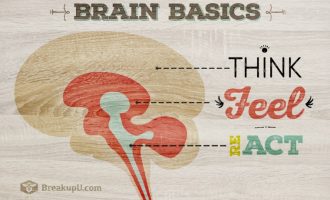
Mindfulness
August 1, 2016
by Kyra Wagner
Leaves around town are starting to show signs that fall is on its way. After the crazy busy summers that Alaskans tend to push through, there is always a bit of a collective sigh when fall comes. But Americans in general are known for moving too fast and we all know how life can pile up on you no matter what time of the year it is.
It is this constant stress that takes a toll on a person’s health. The human body was designed to have “fight or flight” responses in emergencies, but modern society tends to put us there on a regular basis. That kind of stimulation pumps out chemistry throughout the body that affects our health.
It also affects the way we think. The “fight or flight” portion of the brain is a totally different section than the “thinking” part of the brain. The interesting trick is that this protective warning center, the amygdala, reads information coming into your awareness before the thinking brain, the neocortex, has had a chance to edit it.
Sorry to geek out on brain science, but this is an important factor in health and relationships. A term I love is “amygdala hijack”, coined by Daniel Goleman in his 1996 book “Emotional Intelligence: Why It Can Matter More Than IQ.” If the amygdala registers a memory of trauma associated with the stimulus you are experiencing, it will act on it without checking with the neocortex first.
This means logic is out of the picture, you are acting completely on emotion. Not only does this mean that you can be acting irrationally and destructively, it means that your body is awash with chemicals that meant to stimulate defensiveness.
Not only can this negatively affect your relationships (obviously), but it will affect your physical, mental and emotional health. If you are a child who has had a lot of stressful and traumatic experiences, your amygdala is more likely to have a negative memory to attach new experiences to. That means less time thinking about things and more time reacting.
Adverse Childhood Experiences, or ACEs, have been tied to all kinds of health risk behaviors including teen pregnancy, drug use and obesity. But ACEs have also been tied to health problems later in life ranging from heart disease to autoimmune diseases.
This is why MAPP of the Southern Kenai Peninsula has identified family wellbeing as a top priority for community health. Until we can create a caring and supportive community to lower stress, we will never overcome long term illnesses.
Luckily Homer was selected to work with a state-wide group working on making our community that supportive and caring place. Over the next year organizations around town will be focusing and learning about how to make their work more sensitive to people who have experienced trauma. (Contact Rachel Romberg of the local Resilience Coalition for more information at 235-1580)
But all organizations in the world working together can’t do as much for you as you can do for you. This is where mindfulness comes in. (Warning: more brain science coming up.)
Mindfulness is like brain exercise. All you are doing is practicing the art of being in your neocortex. By strengthening your own ability to bring stimulus and information to the “thinking brain,” you will find yourself less reactive and more thoughtful. Simple science. Less amygdala hijack.
Sitting quiet for a few minutes a day counting your breaths might seem self-indulgent in your busy schedule. But keep in mind that it is for your future health, for your ability to work and play well, for the sake of the relationships of your family, your coworkers and your neighbors.
It’s not just for you, it’s for your community.

